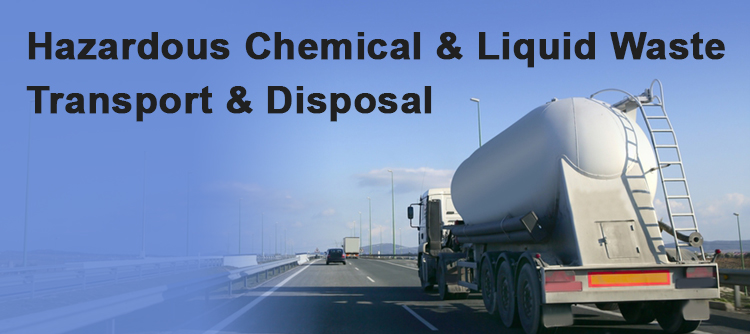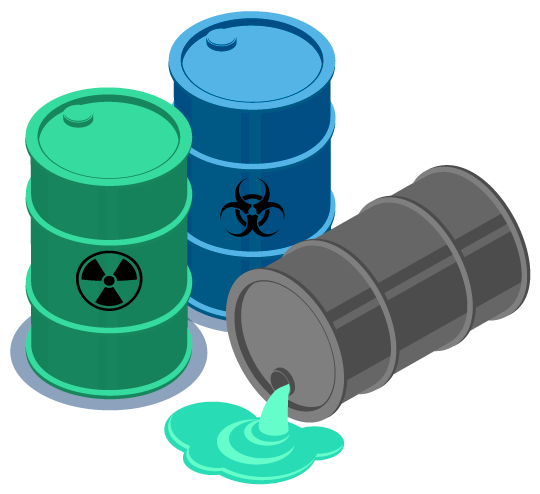Understanding the Comprehensive Refine of Liquid Garbage Disposal: Best Practices and Environmental Influence Considerations
The management of liquid waste disposal is a diverse concern that needs a thorough understanding of different best techniques and their linked ecological influences. From the types of fluid waste produced to the approaches used for collection, therapy, and last disposal, each step plays a critical role in securing environments and public health and wellness.
Sorts Of Liquid Waste
Understanding the various kinds of liquid waste is important for reliable monitoring and disposal techniques. Liquid waste can be extensively classified into several kinds, each calling for distinct handling and therapy methods.
Industrial fluid waste frequently has unsafe materials, including hefty steels, solvents, and chemicals, produced throughout making processes. These wastes necessitate strict governing compliance to safeguard human health and wellness and the setting. Domestic liquid waste mostly describes wastewater produced from houses, including sewer and greywater, which, although less poisonous, can still present considerable dangers if incorrectly taken care of.
Agricultural liquid waste, including runoff from farms, commonly has fertilizers and chemicals that can cause ecological destruction otherwise dealt with properly. Medical liquid waste, produced from health care facilities, includes polluted fluids such as bodily fluids and chemicals, needing specialized disposal techniques to protect against infection and environmental contamination.
Finally, oil and grease waste, commonly produced by restaurants and automotive industries, can cause severe blockages in drain systems if not managed correctly. Recognizing these groups promotes targeted techniques for treatment, conformity with guidelines, and reliable disposal methods, eventually promoting environmental sustainability and public health safety and security.

Collection Techniques
Effective collection approaches are important for the appropriate management of fluid waste, making sure that it is collected safely and successfully prior to treatment or disposal. Various methods are used depending upon the type of liquid waste generated, the quantity, and the particular characteristics of the waste.
One common method is using dedicated collection containers or sumps, which are created to capture fluid waste at the source. These systems usually integrate pumps that help with the transfer of waste to bigger storage containers or therapy centers. Furthermore, mobile collection units outfitted with vacuum modern technology are employed in scenarios where waste is created intermittently or in hard-to-reach places.
For commercial settings, closed-loop systems can properly minimize spills and leakages, enabling the recuperation and reuse of liquid waste. It is likewise important to educate workers on proper collection procedures to reduce risks connected with dangerous materials.
In addition, carrying out normal upkeep schedules for collection equipment ensures ideal efficiency and security. The assimilation of advanced tracking systems can improve collection performance by giving real-time information on waste degrees and possible hazards. In general, efficient collection approaches are foundational to sustainable liquid waste administration techniques.
Treatment Processes
Treatment procedures play a vital function in the monitoring of liquid waste, transforming possibly dangerous materials into safe effluents or reusable resources - liquid waste disposal. These processes can be extensively classified into physical, chemical, and biological methods, each tailored to deal with specific impurities present in the waste stream
Physical treatment techniques, such as sedimentation and filtering, work by removing suspended solids and particle matter. These methods are commonly the very first action in the treatment chain, effectively reducing the lots on subsequent procedures. Chemical therapies involve using reagents to counteract dangerous compounds, speed up hefty metals, or oxidize natural contaminants, therefore boosting the safety and security of the effluent.
Biological therapy processes, consisting of triggered sludge systems and anaerobic food digestion, capitalize on the all-natural capabilities of bacteria to degrade natural issue. These techniques are particularly efficient for wastewater containing naturally degradable contaminants. Advanced therapy modern technologies, such as membrane filtration and advanced oxidation procedures, are increasingly utilized to achieve greater degrees of purification.
Integrating a combination of these therapy methods not just ensures compliance with regulatory criteria yet also promotes ecological sustainability by recovering important sources from fluid waste.
Disposal Options
How can organizations make certain the accountable and safe disposal of fluid waste? Reliable disposal alternatives are essential for securing public wellness and the environment. The main techniques consist of land treatment, disposal, and incineration adhered to by discharge right into municipal wastewater systems.
Land disposal includes the cautious address control of fluid waste in marked land fills, ensuring that it does not seep right into bordering soil or water. Incineration, on the other hand, subjects liquid waste to heats, transforming it right into ash and gases, which call for proper filtration to decrease discharges. This method appropriates for contaminateds materials that can not be treated with traditional means.
In situations where liquid waste can be dealt with, organizations may choose organic or chemical therapy processes to counteract damaging parts prior to discharging the treated effluent right into metropolitan systems. This course normally straightens with regulatory demands, making sure that the effluent meets safety and security requirements.
Inevitably, organizations must conduct comprehensive analyses of each disposal option to establish its feasibility, considering aspects such as waste composition, regulative compliance, and prospective risks click for info to wellness and the environment. By picking ideal disposal techniques, businesses can add to a liable waste administration strategy.
Ecological Effect
The environmental influence of fluid waste disposal is a vital consideration for organizations seeking to lessen their ecological impact. Additionally, the discharge of neglected or improperly dealt with waste into surface waters can result in eutrophication, leading to oxygen depletion and the subsequent death of fish and other organisms.

To mitigate these effects, organizations should adopt best practices such as implementing strenuous waste therapy procedures, promoting recycling and reuse, and sticking to regulatory requirements. By taking a proactive approach to fluid waste administration, entities can significantly reduce their ecological footprint while supporting lasting advancement goals. Ultimately, a thorough understanding of the ecological effects related to liquid garbage disposal is crucial for informed decision-making and responsible stewardship of natural deposits.
Conclusion
Effective monitoring of liquid waste is crucial for securing ecological integrity and public health and wellness. Inevitably, a thorough understanding of fluid waste disposal not only alleviates ecological impacts yet also promotes a commitment to liable resource management and environmental stewardship.
The administration of fluid waste disposal is a multifaceted problem that needs a comprehensive understanding of different finest methods and their associated environmental effects. From the types of fluid waste produced to the approaches used for collection, therapy, and last disposal, each action plays an important role in protecting environments and public wellness.The ecological influence of liquid waste disposal is a crucial consideration for organizations seeking to lessen their environmental footprint. Ultimately, an extensive understanding of the ecological impacts associated Visit Website with liquid waste disposal is important for informed decision-making and responsible stewardship of natural resources.
Ultimately, a comprehensive understanding of fluid waste disposal not just reduces environmental influences yet likewise fosters a dedication to responsible resource administration and environmental stewardship.